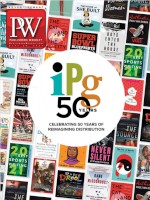In I’m Possible (Flatiron, Oct.), White recalls his rise from homelessness to becoming principal tubist of the New Mexico Philharmonic.
What drew you to classical tuba?
I went to high school with Tupac Shakur at the Baltimore School of Performing Arts, and I was beat-boxing tuba with a tap dancer rapping with Tupac. I learned about the classical sound when I heard [former Baltimore Symphony Orchestra tubaist] David Fedderly. I was like, “If the tuba can sound like that, I’m going to take over the world!”
As a young boy in Baltimore you lived on the streets with your mother, buying chicken gizzards with loose change that you found in the gutter. How did you imagine your life would turn out?
I had no idea. Every day was about survival. I didn’t know you were supposed to change clothes every day. I just needed to find Ma, I needed to eat, and I didn’t know anything else.
Then you were taken in by your foster parents Richard and Vivian McClain. How did that turn your life around?
That change was incredible. I didn’t know people ate three meals a day, so when they gave me sandwiches I would stick them in my pocket. I didn’t want to let them down. Vivian once came to my middle school because I had an incident with the vice principal, and she was in tears. She said, “I’m at my wits end, I don’t know what we’re going to do about you.” I saw such pain in her eyes that I never wanted to cause that pain again.
You went on endless auditions for tuba positions, and at first you lost out. What did you take from those setbacks?
That was an incredibly difficult time. One summer, I auditioned for festivals, and I didn’t get into any. I put those rejection letters in my room, and every day I woke up and looked at a sign that said, “When you don’t feel like practicing, remember these.” I made that tuba a priority.
Do you sometimes think that, as a Black man, the classical music world hasn’t made room for you?
That’s a profound question. I’m respected in the classical community because I try not to argue. I’m just going to show you that I belong, with my talent. And I’m going to be brutally honest with myself about my deficiencies. So I think, in spite of every oppression out there, in spite of African Americans being underrepresented in orchestras, I am going to succeed. My biggest desire is that my book can give hope to anyone at a disadvantage, can just give them a nudge and say, “You can do it; keep swinging.”



 Volume 268
Issue 26
06/28/2021
Volume 268
Issue 26
06/28/2021





